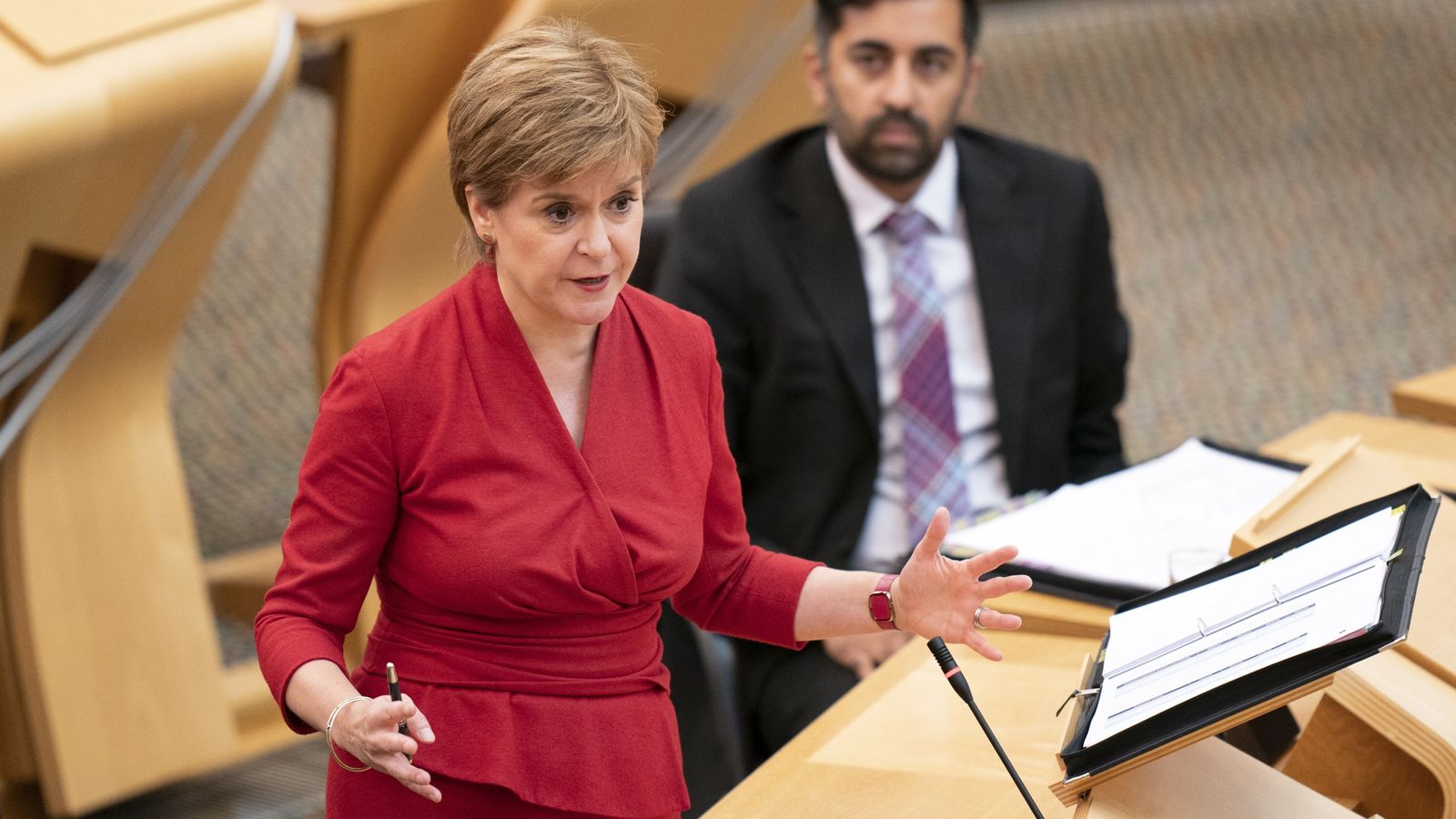The military could be called in to help Scotland’s ambulance service which is facing “acute pressure”, Nicola Sturgeon has announced.
Scotland’s first minister apologised “unreservedly” for long waiting times and confirmed that targeted military assistance to help deal with “short-term pressure points” is under consideration.
The announcement came as Ms Sturgeon was questioned about the death of Gerald Brown, a 65-year-old from Glasgow, who reportedly died after waiting 40 hours for an ambulance.
The first minister said the pressures were due to the coronavirus pandemic.
“Our ambulance service is working under acute pressure right now, largely due to COVID,” Ms Sturgeon told MSPs in Holyrood on Thursday, as she offered her condolences to Mr Brown’s family.
“I want to take the opportunity to thank the paramedics and ambulance technicians for the work they’re doing in such difficult circumstances.
“While they are responding heroically to these challenges I recognise that some people are not getting the standard of service that they should be getting, or indeed the service the Scottish Ambulance Service wants to deliver.
COVID-19: Vaccine booster programme begins as NHS starts giving third jabs
COVID-19: Dozens of infections in Putin entourage force him to self-isolate ‘for a few days’
COVID-19 travel list: Caribbean hotspots among countries at risk of being added to red list
“That is not acceptable and I apologise unreservedly to anyone who has suffered or who is suffering from unacceptably long waits.
“A range of actions have already been taken to address these challenges, for example, additional funding to support new recruitment.”
Ms Sturgeon said “a number of additional actions are under consideration” to ease the backlog, including “seeking targeted military assistance to help deal with short-term pressure points”.
“This is a service under acute pressure,” she added.
Scotland’s Health Secretary Humza Yousaf will make a statement to the Scottish parliament next week setting out measures being taken by the government to ease the crisis, it was also announced.
Mr Yousaf said on Wednesday that people should “think twice” before calling for an ambulance due to a period of high pressure on the service.
Scottish Conservatives leader Douglas Ross described Mr Yousaf’s remarks “dangerous” and “reckless” and called for an apology.
“This shouldn’t be happening in Scotland in 2021,” Mr Ross said, suggesting Scotland’s ambulance service is in “crisis”.
Ms Sturgeon did not apologise for Mr Yousaf’s remarks, but did say that people should “never hesitate in calling an ambulance if that is the intervention they think is required”.
The first minister refused to call the situation a crisis, instead responding: “I don’t challenge the extent of the pressure that’s on our ambulance service and indeed on all parts of our national health service.
“It is incumbent on me as first minister, with all of my colleagues across government, as it faces up to these challenges.”
Speaking specifically about the case of Mr Brown, a spokeswoman from the Scottish Ambulance Service said: “We have started an investigation into the circumstances relating to the delay in reaching Mr Brown and will be in contact with Mr Brown’s family directly to apologise for the delay in response and pass on our sincere condolences.
“We are really sorry for their loss and our thoughts are with them at this difficult time. All findings and lessons learned will be shared with Mr Brown’s family as part of the investigation process.”
Mr Brown’s death has been reported to the Procurator Fiscal, who said an investigation was “ongoing”.






















